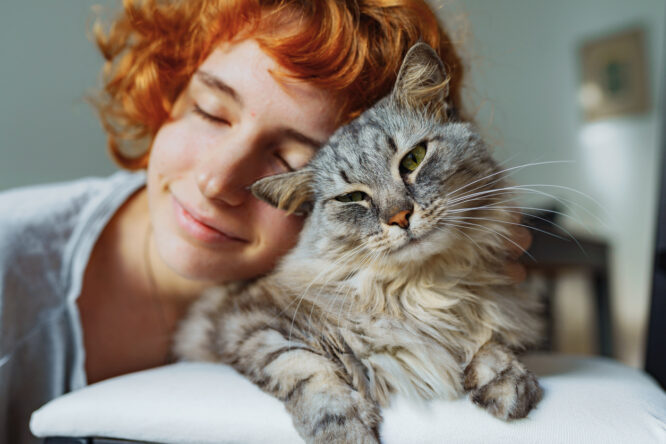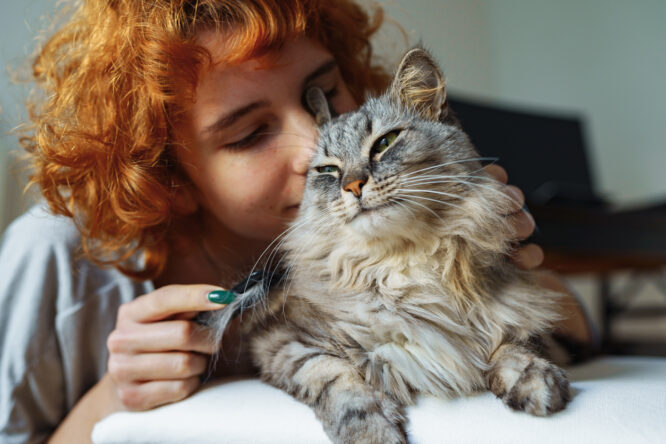Cats have a reputation for being low-maintenance, independent, and basically chill 24/7.

Of course, anyone who’s lived with one knows that’s only part of the story. They’re sensitive little creatures, and the things that stress them out aren’t always obvious. You might think they’re just being moody or aloof, when really, they’re trying to tell you something’s off. Here are some of the sneaky, everyday ways you might be stressing out your cat without even knowing it.
1. Constant loud noises
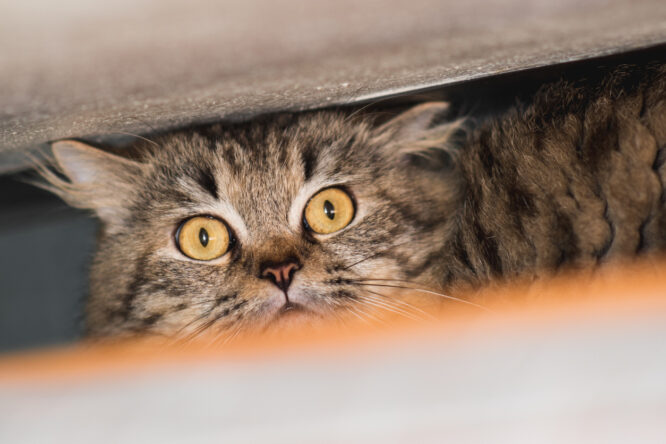
Things like slamming doors, shouting, loud music, or even the vacuum cleaner on a random Tuesday can send your cat into hiding. Their hearing is way more sensitive than ours, so what sounds normal to you might feel full-on chaotic to them. If your home tends to be noisy, it helps to have a quiet space your cat can escape to when it all gets a bit much. Peace and quiet is basically their version of a spa day.
2. Too much change at once

Cats love routine. They like knowing when dinner’s coming, where their litter box is, and that their favourite sunny spot is still going to be there. Sudden changes like moving furniture, changing schedules, or bringing home a new pet can throw them off completely. Even small changes can feel like a big deal to them. If you do need to switch things up, try to introduce changes gradually so they have time to adjust without spiralling into stress-mode.
3. Moving their stuff around

You might think you’re tidying up, but moving their litter box, food bowl, or favourite bed to a new spot can really throw them. Cats don’t just get attached to objects—they get attached to locations. If something needs to move, try easing them into it by slowly transitioning rather than just switching things overnight. They like to feel in control, and sudden changes feel like a threat to their little kingdom.
4. Picking them up when they’re not in the mood

Some cats love being held; others, not so much. If your cat squirms, stiffens, or tries to escape every time you scoop them up, they’re probably not enjoying the cuddle. It’s not personal. They just like affection on their terms. Let them come to you, and you’ll usually get way more snuggles in the long run.
5. Ignoring signs of overstimulation

You’re petting them, they’re purring, everything’s lovely… until they suddenly bite or bolt. That’s not them being unpredictable—it’s them hitting their limit and not being heard. Watch for signs like tail twitching, ears flattening, or their skin rippling. Those little cues mean “I’m done now,” and respecting that boundary keeps the trust strong.
6. Using strong-smelling products
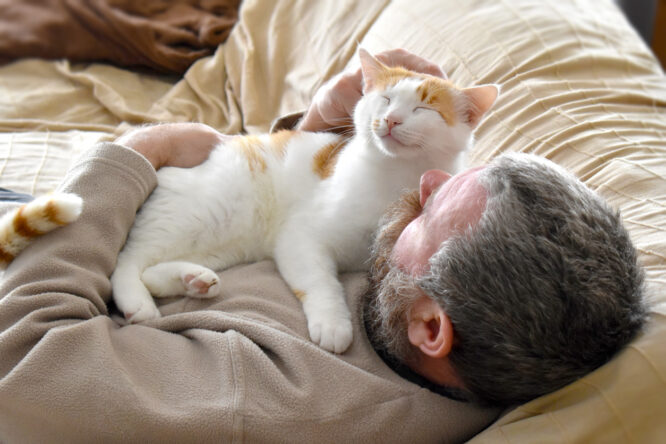
That new air freshener, cleaning spray, or scented candle might smell nice to you, but to your cat, it could be totally overwhelming. Their sense of smell is seriously dialled up, so strong scents can feel like a full-on attack on their senses. Stick to fragrance-free or pet-safe options where you can. If your cat’s suddenly avoiding a room, it could be because something in the air is putting them off.
7. Not giving them vertical space

Cats love to climb, perch, and survey their surroundings from up high. It makes them feel safe and in control. If your home doesn’t have any cat trees, shelves, or safe high spots, they might feel a little exposed or anxious. Even a window ledge or the top of a cupboard can help. Think of it as giving them a little balcony where they can decompress and quietly judge everything below.
8. Bringing strangers into their space without warning

Some cats are total social butterflies; others will vanish the moment someone new walks through the door. Either way, unexpected visitors can feel like an invasion of their territory. Let your cat hide if they want to, and ask guests not to chase or pick them up. Giving them the choice to engage makes them feel a lot more secure.
9. Playing too rough (or not at all)
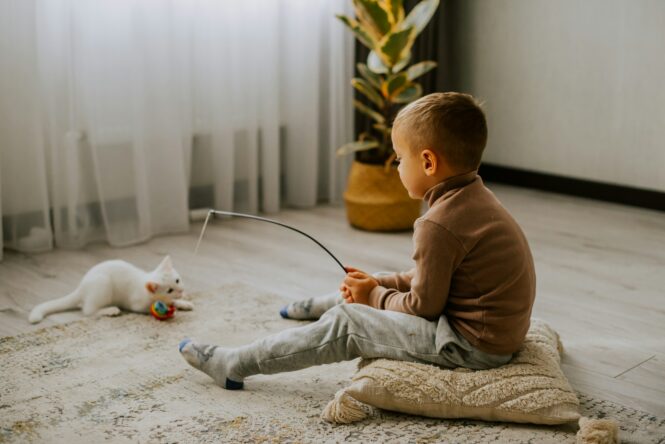
Boredom is its own kind of stress for cats. They need regular playtime to burn energy, stay stimulated, and feel satisfied. However, if play gets too aggressive or unpredictable, that can stress them out too. Stick to toys that mimic prey like wands, feathers, or small toys they can “hunt.” Oh, and let them win sometimes. It boosts their confidence and makes them more likely to want to play again later.
10. Not cleaning the litter box often enough
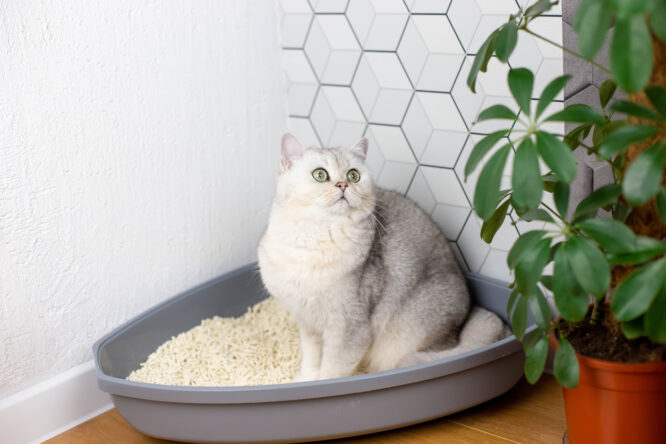
Let’s be honest, no one loves cleaning the litter box. But if it’s not done regularly, your cat might get seriously stressed (or start doing their business elsewhere to make a point). A clean box equals a happy cat. Try scooping daily, and make sure it’s placed somewhere quiet and accessible, not next to a noisy washing machine or in the middle of a high-traffic hallway.
11. Ignoring body language
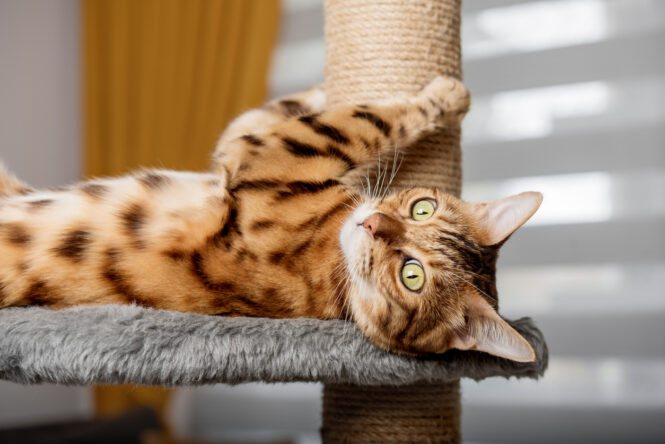
Your cat is constantly communicating, just not with words. If they start hiding more, acting out, or changing their habits, that’s often their way of saying “something’s off.” Stress can show up in subtle ways, such as over-grooming, restlessness, or avoiding food. Keeping an eye on these changes helps you spot issues before they grow into something bigger.
12. Treating them like a dog

Cats aren’t pack animals, and they don’t operate like dogs, no matter how clever they are. They need space, autonomy, and time to do things on their own terms. Trying to train them the same way or expecting constant affection can leave you both frustrated. Respecting their independent streak is key to keeping the peace (and keeping your curtains intact).


